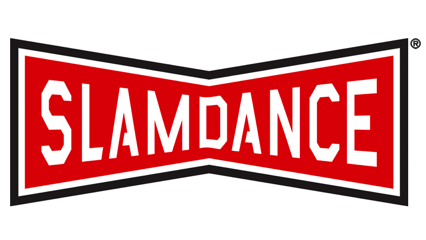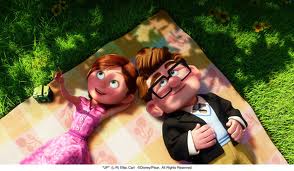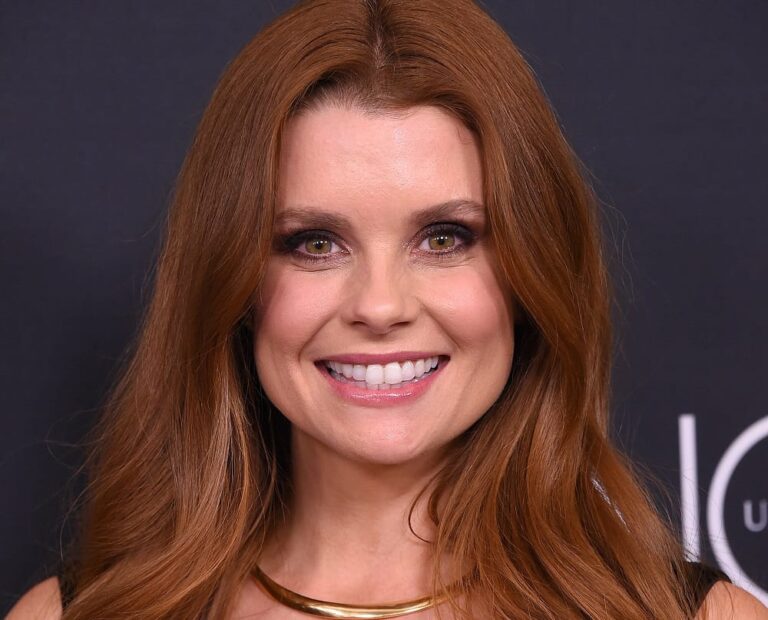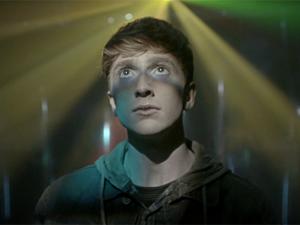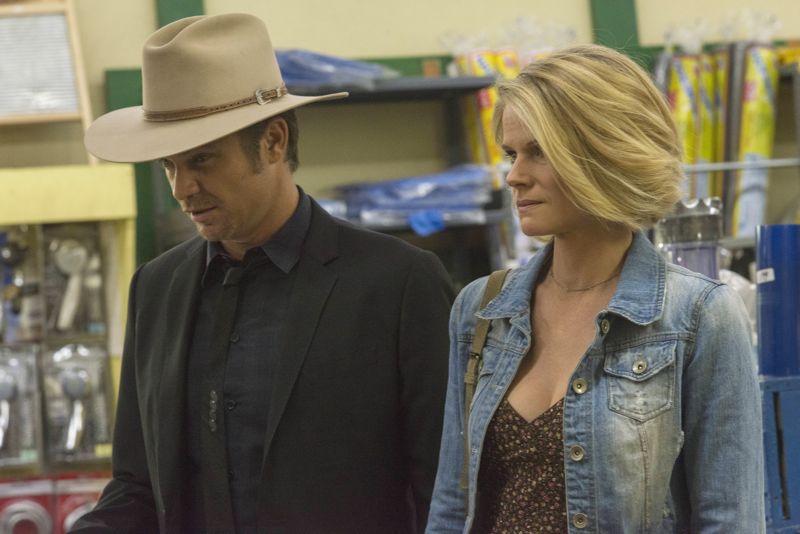 Slamdance 2011 is in full swing and here at Sound on Sight we’ll be interviewing filmmakers from the festival all week. Director Laurel Parmet shared with us some of her experiences in making her beautiful film, Pampeliška. The short film, which screened at Slamdance on Saturday January 22nd, and will play again at the festival on Tuesday January 25th, was a project Parmet undertook while studying film in Prague. Read about what it was like filming in a foreign country in a foreign language, and about how an image from her mind of two girls crossing a crumbling bridge on the outskirts of the city was the seed for the entire film.
Slamdance 2011 is in full swing and here at Sound on Sight we’ll be interviewing filmmakers from the festival all week. Director Laurel Parmet shared with us some of her experiences in making her beautiful film, Pampeliška. The short film, which screened at Slamdance on Saturday January 22nd, and will play again at the festival on Tuesday January 25th, was a project Parmet undertook while studying film in Prague. Read about what it was like filming in a foreign country in a foreign language, and about how an image from her mind of two girls crossing a crumbling bridge on the outskirts of the city was the seed for the entire film.
Synopsis: Eleven year old Klara runs away from home after a fight with her abusive father and spends the day with her best friend Lucie. Their relationship, however, is tested when Klara cannot forget the realities of her life at home.
Can you name some of your favorite films/directors?
Right now I love Robert Bresson’s films, their simplicity and austerity. Lynn Ramsay too, “Gasman” and “Ratcatcher” are two of my favorite films. Also, Wim Wenders’ “Paris, Texas,” Milos Forman’s “Loves of a Blonde,” Jane Campion’s “Sweetie,” and Cassavettes’ “A Woman Under the Influence,” just to name a few.
Can you tell me where the inspiration for Pampeliška came from?
There’s this decrepit old train bridge on the outskirts of Prague, where I shot Pampeliška, and I thought it would make a great location for a film. I kept picturing two girls running down the train tracks, and the story sort of developed from that image. Funnily enough, I ended up cutting the train track scene out of the script, and the film’s probably better for it. Many people have asked me if Klara’s relationship with her father was inspired by my own relationship with my father, but I actually have a fantastic relationship with my dad. Maybe this film is a kind of celebration of our closeness.
Had you directed any films before Pampeliška?
Pampeliska is the first film I have directed. I have a background in theater and acting, but I think I always knew I’d get into filmmaking. Both of my parents are in the industry — my father’s a cinematographer and my mother’s a costume designer — so I grew up surrounded by filmmakers.
Were you surprised when you found out the film had made it into Slamdance? Are you attending the festival?
I was very surprised when I found out Pampeliska made it into Slamdance. I sort of entered it on a whim, I didn’t really think it would be accepted. I’m so excited, of course I’m attending.
The film was made while you were attending the Film and TV School at the Academy of Performing Arts in Prague. Were you an undergrad? Or was it a graduate program? What did you take away from this program in Prague?
I attended a year-long academy program at FAMU during my junior year of college that was full of international students of all ages. It was a pretty great experience. They don’t hold your hand at FAMU, they like to just throw you into it with a camera and see what you come up with. It was really hard, but it toughened me up. One of the best things about the program was meeting my DP, Eren Akay, and my editor, Joe Gainsborough, two incredibly talented individuals that taught me so much.
The film is actually in Czech, so I’m wondering if you speak Czech. Did you have someone translate the screenplay for you? What was it like directing in another culture/language?
I took a Czech class in Prague, but I speak very little of the language. It’s very hard to learn, many Czechs told me not to even bother learning it because I wouldn’t! But I can say with pride that I got an A+ in my Czech class. I wrote the script in English and my producer translated for me. Our actresses did not speak English, so most of the time I had a translator on set. Everybody thought I was crazy for directing non-English speaking child actors in a language I wasn’t very familiar with, and I thought so too actually. But with my broken Czech, their broken English and the aid of a translator, it worked very well, I don’t even know that I can explain why. The experience taught me a way of communicating and connecting with actors in which language wasn’t necessarily important. For some reason, we were really drawn to each other and we really trusted one another. The girls were able to understand and respond to my directions better than many actors I’ve worked with, even when we didn’t have a translator on set.
Who were the actresses that played Klara and Lucie and how was it working with them?
Klara is played by Luisa Purkrábková and Lucie is played by Valerie Sebkova. They are two of the most incredible young girls. They really threw themselves into the characters. Throughout the rehearsals and the 3 days of shooting they worked so hard, and were so interested in the filmmaking process. They had a really good time. I think they liked playing roles that weren’t one-dimensional and cutesy as child roles so often are. I couldn’t be happier with their performances. I feel so cheesy saying this, but I’m so proud of them every time I watch the film.
On your Slamdance profile under your “war story” you write:
We got the footage back from the lab and discovered that about half of it was ruined, due to a camera malfunction. We could only get a camera and the actors back for one day. So we bought two more rolls of film and shot two days worth of re-shoots in one day, with a crew of three, in the rain, without a sound guy. It turned out way better than the original footage.
Did giving up ever cross your mind when you discovered half your footage had been lost, and in what way was the second round of footage better?
There was definitely a moment when I thought, well I guess it’s over and I’ll just have to look at this as a film exercise. Months of work and preparation down the drain. But Joe and Eren told me to stop sulking and we decided we’d find a way to reshoot it. Then I was told I wouldn’t be able to get a camera, and that my actresses wouldn’t be available, it was nightmarish. But we finally got it together. The shoot was less stressful the second time around because we had already done it, so we felt like we could be more creative. The girls’ performances were even better than the first shoot. Also, the day was a bit gray and overcast, which looked much better on film than the cloudless day of our first shoot.
In a similar vein, do you prefer shooting on film? Is that a method you plan to stick with, or are you open to digital video as well?
I love shooting on film. It’s so beautiful, nothing else comes close to the way film looks. It’s possible I’ve been brainwashed by my DP dad. Pampeliška would not be the same if it were shot digitally. Also, shooting on film feels so much more simple to me; I get overwhelmed by all of the options of digital. All that said, I’m not at all opposed to digital and in fact some of my projects are more suited for digital. I just don’t want film to go away.
 What does Pampeliška mean? How did it become the title of your film?
What does Pampeliška mean? How did it become the title of your film?
Pampeliska means “dandelion” in Czech. My editor Joe actually came up with it one night when we were just playing around with the opening title, and the name stuck. I’d like to say that it was my plan all along, and that the dandelion is a metaphor for Klara’s fleeting innocence or something profound like that, but in all honesty the title was pretty accidental.
Are you working on any films right now?
I’m in the middle of writing a feature about a young brother and sister’s cross country search for their mother, which I’m looking to start producing by next year. I’m also starting production on another short!

